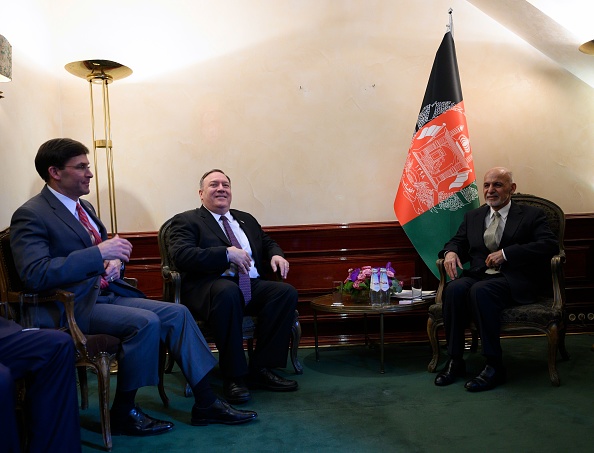NO PEACE DEAL IS VIABLE WITHOUT THE INVOLVEMENT OF ALL PARTIES
Right from the start, the peace negotiations displayed one area of weakness, the lack of presence from the internationally recognized National Unity Government. This is critical since the government can easily deny any of the terms negotiated in the deal. Predictably, President Ashraf Ghani stated that he would not comply with the deal, which stipulated that the government would release 5,000 of the Taliban soldiers it had imprisoned. This is something that the Kabul government absolutely did not want as it would leave them with no leverage to negotiate within the upcoming intra-Afghan talks in Oslo. The Trump administration seemed adamant at first that the Afghan government would not be required to release any Taliban prisoners, and a recent tweet from US Representative Tom Malinowski stipulated that Secretary of State Mike Pompeo promised him that releasing Taliban prisoners would not be part of the deal, now it seems that the administration has backed away from this staunch approach towards the Taliban. In fairness, that part of the deal was not a one-sided demand for the Afghan government, as the Taliban is also required to release 1,000 government security forces personnel. However, as both sides do not have mutual trust, it is unlikely any of them will make the first move. Moreover, the fact that the government is required to release five times the prisoners that the Taliban is required to release gives off the impression that the deal is meant to appease the group rather than stop the fighting between both sides. The big prize that both Washington and the Taliban seek is the withdrawal of US forces from Afghanistan, which under the deal would happen after a 14-month period. This stipulation alone caused the Taliban and its supporters to jubilantly celebrate as if it won a long war.

EARLY CRACKS IN THE DEAL
Naturally, Afghan President Ashraf Ghani rejected the stipulations written down in the agreement and stated that Washington did not have the authority to make such concessions without the consent from the government. In the week running up to the signing, there was a period of reduced violence as the Taliban had halted its operations. Washington had expected the Taliban to continue this period of peace at least until the intra-Afghan talks which are expected to start on March 10. However, soon after Ghani showed his hardened stance against the deal, the Taliban returned to its old ways and started attacking civilians and security forces. Just on Monday, a blast hit a crowded football field in the Nadir Shah Kot district, killing three people from the same family and at least 10 others were wounded. Although no group immediately claimed responsibility for the blast, the fact that it came just after Taliban leaders told its operatives to resume attacks makes the group the most likely culprit. It should be noted though that Taliban leaders have stated that no attacks should be conducted on foreign military personnel: "As per the (US-Taliban) agreement, our mujahideen will not attack foreign forces but our operations will continue against the Kabul administration forces.” Taliban spokesman Zabihullah Mujahid said.
WHO BENEFITS FROM THE DEAL?
This recent attack shows that the Taliban is indifferent towards civilians and will gladly sacrifice innocent lives as long as such attacks serve its agenda. The Afghan government is in no way a winner in this deal as it is forced to sacrifice so much and gain so little. Furthermore, the government has not been given any convincing reasons as to why it can trust the Taliban to maintain its part of the deal, especially after its leaders just called on operatives to attack government forces. The women in Afghanistan certainly don’t benefit from the deal, the Taliban’s hardline Islamist stance views women as second class citizens, and most Taliban controlled areas have prevented women from seeking certain rights, namely the right to an education. The fact that Washington chose not to include any requirements that protected the rights of girls and women, is a travesty on its part.
The Taliban is the clear winner in this deal, as it now has guarantees that Washington will withdraw its forces by May 2021, leaving it with much more breathing space to move around freely and control large areas in Afghanistan. Moreover, the Trump administration will surely use this deal as evidence that he is fulfilling his campaign promise of bringing American troops home. Nevertheless, the fact that the full withdrawal is not set to happen until May of next year gives the Trump administration some leverage to redeploy troops once again. The Trump administration could, in theory, reverse the decision in the event that he is reelected and the situation in Afghanistan falters as a result of the reduced American presence. This is what happened in northeast Syria last year when Trump decided to send back US troops in order to keep Turkish forces in check. While the deal might end the US’s fight in Afghanistan, it will certainly not end the fighting in Afghanistan, and the civil war in Afghanistan will surely enter a new bloody chapter that has no end in sight.






